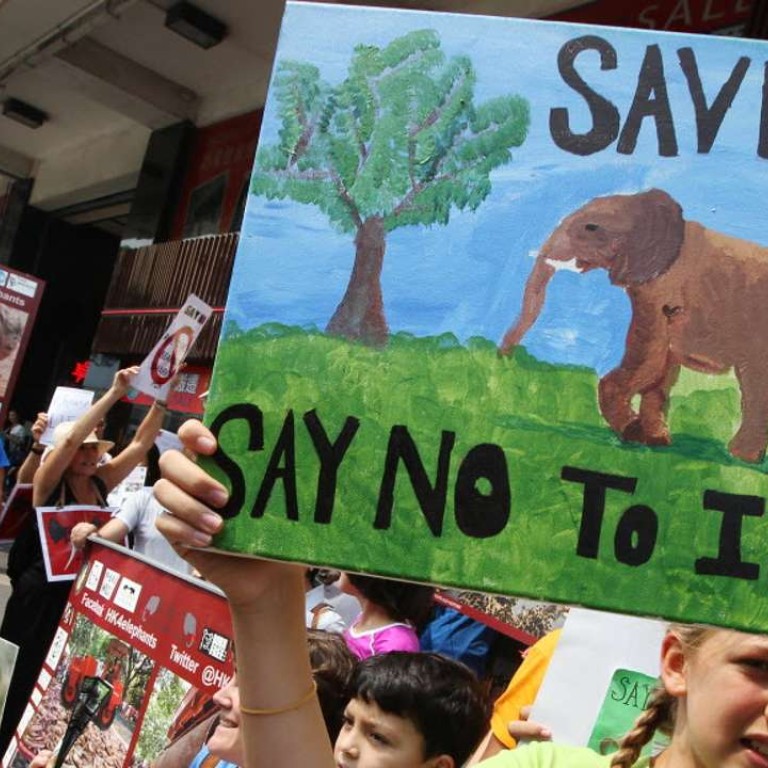
Exclusive | Controversial ivory trade to continue for five more years before full ban imposed
Government envisages three-phase move towards prohibition with total ban expected in 2021; officials do not propose to compensate traders
A plan that would give Hong Kong’s officially sanctioned ivory traders five years to sell off their existing stockpiles before the imposition of a blanket ban has been given a cautious welcome by campaigners against the trade.
Details of the government’s gradual plan to outlaw the trade completely by 2021 – which officials say negates the need to pay compensation to those engaged in it – emerged from an Environment Bureau paper due to be discussed at a Legislative Council panel on Monday.
The three-step approach stems from the latest survey of the city’s ivory trade by the Agriculture, Fisheries and Conservation Department, which describes it as “generally inactive” and no longer a substantial part of most traders’ businesses.
Step one will see a ban on imports and the re-export of hunting trophies and ivory carvings; step two, a ban on the trade in ivory products acquired before 1975, when an international convention regulating trade in endangered species came into force; and step three, the total outlawing of all domestic sales including those obtained before 1990, when a global trade ban was enacted.
The plan will be tabled in Legco in the first half of next year.
“We believe this is the fastest and most efficient way to achieve our purpose ... we estimate the total ban would be achieved by the end of 2021,” the bureau’s discussion paper says.

The plan comes after a ban on the international ivory trade came into force in 1989.
In the wake of that ban, Hong Kong issued possession licences for tusks, the majority of which allowed ivory to be legally traded by locally licensed operators. As of January, 77 tonnes of legal ivory remained among 370 licence holders.
The department said it had to give traders reasonable time to transform their businesses and for licences to expire.
“Taking into account a sufficiently long grace period ... we are of the view that no compensation should be provided,” the bureau paper says.
Cheryl Lo of WWF-Hong Kong said she understood the logic of the government’s approach but added: “With close to 100 elephants dying a day, there is no time to waste.”
Hung Hom ivory trader Daniel Chan Chun-bo described the plan as “illogical” as the trade was already regulated and in decline.
“Even if they gave us 50 years, they need to be reasonable and explain what they want to achieve,” Chan said. “This is a legal trade and we haven’t broken any laws. If you stop the sales, will it really stop the killing of elephants in Africa?”
Lawmaker Elizabeth Quat said she had asked officials why it would take so long, but was told a faster approach risked legal challenges.


